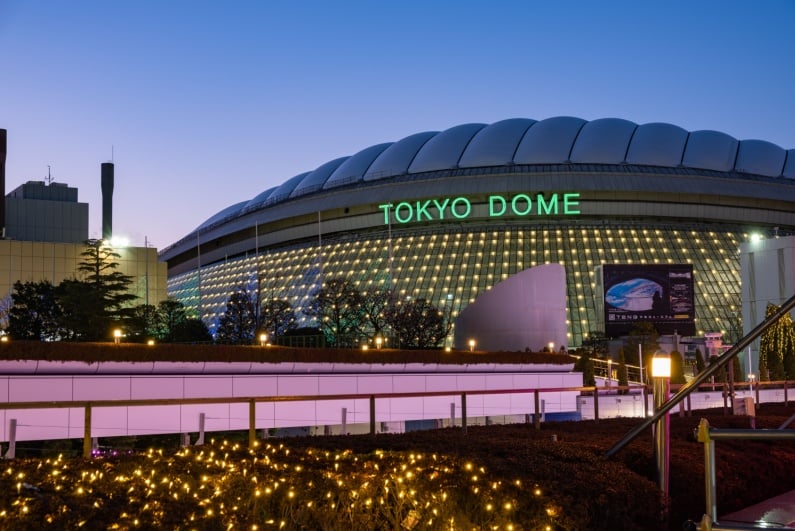Who saw these flops coming?
Graham Potter’s Sunday sacking at English Premier League (EPL) club Chelsea adds another unfortunate victim to the list of biggest managerial flops in the history of the league.
the most competitive league in world soccer
The EPL is the most expensive and considered by many the most competitive league in world soccer. Competition is so fierce that a manager’s ability to outthink and outwit their opponents become the key to success amid talent-based deadlocks.
Potter is not the first and certainly won’t be the last manager to fall surprisingly short of expectations in the league. Every member of VegasSlotsOnline News’ list of the biggest EPL managerial flops will likely also wish their careers were remembered differently.
Graham Potter – Chelsea
Chelsea win rate: 32%
After securing a commendable win rate at Brighton given the limited talent on offer, Potter strolled into the bright lights of Stamford Bridge as the man to lead the new era at Chelsea.
Chelsea’s previous owner, Roman Abramovich, was sanctioned and eventually ousted in 2022 due to his connections to Russian oligarch Vladimir Putin. The club was sold to a consortium led by ambitious businessman Todd Boehly, who splashed a record amount of cash in the summer transfer window and then again in January.
Potter had achieved some success as the manager of Brighton & Hove Albion, at the time a relatively unrespected club in the EPL. He helped transform the team into one that was forward-thinking and dynamic, leading them to a ninth-place finish in the league in 2022. The Seagulls were in fourth when he departed for southwest London on September 9.
scored and conceded 21 goals and failed to find the back of the net nine times
Potter’s momentum did not carry over to a team with higher expectations and pedigree. In 22 Premier League matches in charge of Chelsea, he helped produce just seven wins, seven draws, and eight defeats (32% win rate). His team also scored and conceded 21 goals and failed to find the back of the net nine times. Despite the major jump in resources, financial backing, and player ability, Potter only improved on his Brighton win rate by around 4% at Chelsea.
Graeme Souness – Liverpool
Liverpool win rate: 41%
Souness had a legendary playing career that is best remembered for his seven-year stint at Liverpool. He won five league titles, four league cups, and three European trophies while playing as a midfielder and captain of the Reds, all of which makes his inclusion as one of the biggest EPL managerial flops hard to swallow.
Souness’ managerial career began while he was still playing at Rangers, where he fittingly assumed the role of player-manager. It made sense that when Kenny Dalglish retired in 1991, Souness would come back to his former stomping ground to lead Liverpool this time from the touchline.
fell from perennial title contenders to just another decent team on the periphery
Unfortunately for the once-great midfielder, his return was spoiled by an aging and declining squad and foiled by questionable personnel decisions. He oversaw the Reds as they fell from perennial title contenders to just another decent team on the periphery. He eventually resigned in January 1994 after a surprise loss to Bristol City in the FA Cup.
Although Souness’ record on paper is not terrible, it is remeniscent of Potter’s tenure at Chelsea. With expectations sky high and an abundance of resources available, Souness’ win return was simply not good enough for a team of Liverpool’s calibre. The now-Sky Sports pundit walked away from Liverpool with a managerial record of 65-47-45 (41% win rate) compared to a 434-217-229 (49% win rate) lifetime record.
Frank de Boer – Crystal Palace
Crystal Palace win rate: 20%
de Boer is a well-traveled Dutch manager that has made stops at places such as Ajax, Inter Milan, and the Netherlands national team, and he has an impressive lifetime record of 203-69-80—but one tenure that he (and Eagles fans) will be eager to forget was with Crystal Palace.
The Dutchman replaced Sam Allardyce at Palace in June 2017. He signed a three-year deal and was supposed to help the club rebound from seasons that culminated in 15th and 14th-place finishes.
The Palace hierarchy chose to overlook a disastrous stint at Inter Milan the year prior, one that lasted only 85 days before he was axed. de Boer unsuccessfully argued that he “needed more time” to get his ideas across and for the team to reflect his attitudes and intentions.
Notably, de Boer’s 36% win rate at Inter, dismal for a team of that quality, was nothing compared to what was to come at Palace. They started the 2017 campaign off with four straight losses to Huddersfield Town, Liverpool, Swansea City, and Burnley by a combined score of 7-0. The losses and failures to score even one goal shattered a 93-year-old league record.
worst manager in the history of the Premier League”
de Boer was ultimately sacked just ten weeks and four matches into his reign at Palace. Legendary leader Jose Mourinho later called de Boer, who went 1-0-4 (20% win rate) in all competitions during his time in charge, the “worst manager in the history of the Premier League.” Although harsh, the results don’t put up a compelling case against it.
de Boer has a lifetime record of 203-69-80 (58% win rate), which makes the short-lived run at Palace even more disappointing.
Felix Magath – Fulham
Fulham win rate: 20%
de Boer wasn’t the only manager that suffered four fatal losses to start an EPL season.
In 2014, Fulham was on a fast track to relegation from the Premier League. It made a last-ditch effort to avoid such a fate and brought in manager Felix Magath, who had helped several relegation-stricken German clubs avoid the drop. He also previously won two doubles with Bayern Munich and league titles with Bremen and VFL Wolfsburg.
Magath was known for demanding discipline and effort from his players, similar to other managers brought in to stabilize struggling teams. Unfortunately for yet another ill-fated London club, even his expertise was not enough to stave off the drop, and Fulham was sent down to the Championship under his command.
The story did not get any better against the easier level of competition. Like de Boer, Magath kicked off his next season in charge with four consecutive losses and was winless after 11 games, at which time he was sacked. Fulham finished the Championship season in 17th.
Magath, who has a career managerial record of 383-183-242 (47% win rate), went just 4-4-12 (20% win rate) with Fulham across all competitions.
Rémi Garde – Aston Villa
Aston Villa win rate: 13%
Garde was a name familiar to EPL fans when Aston Villa appointed him as boss in 2015. He had played three years for Arsenal and was a part of their FA Premier League-winning side in 1997-98. He also received six caps for the French national team which, at the time, was a powerhouse in world soccer.
After being forced into retirement through injury, Garde pursued a career in coaching. He stumbled into the Villa job in November to help stabilize a club that sat precariously in last place in the league table. Only six days after his appointment he drew 0-0 with league leaders Manchester City, which was not a bad result.
Garde was another manager that focused heavily on discipline and structure. He dropped star boy Jack Grealish after a 4-0 loss against Everton for partying and ruthlessly dictated his tactics to his players.
a record of 3-7-13 and a 13% win rate
Tragically, neither Garde’s ideas nor demeanor could make a resounding impact on the Villans, who had not been in the second tier of English soccer since 1987 but were still at the bottom of the table when he departed in March. He walked away with a record of 3-7-13 and a 13% win rate, both of which were markedly worse than his lifetime record of 116-54-88 and 45% win rate.
Villa finished the year in 20th and fell to the Championship.




